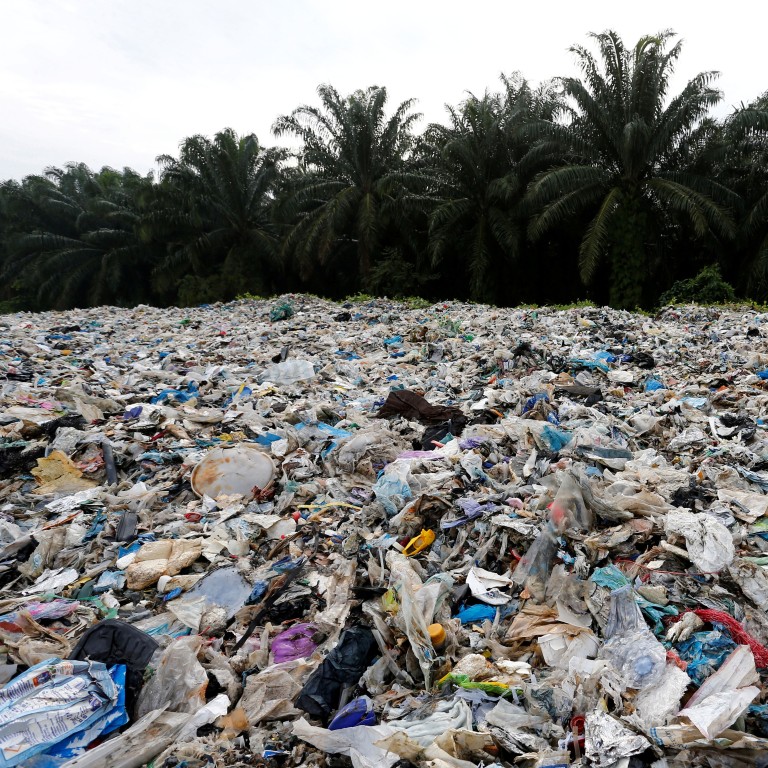
China's recycling revolution: How the National Sword policy caused global disruption
- How China caused a global disruption to domestic recycling programmes and inspired Southeast Asian nations to reject Western waste
- Chinese companies invest millions in American facilities to secure recycled cardboard and plastic supplies
New Year’s Day in 2018 was the first day of a new policy introduced in China, called National Sword. Its impact would be felt by households across the US and Australia, by local, state and national governments and by entire industries that would be left teetering on the brink of collapse.
The shock to domestic kerbside recycling programmes continues to reverberate - but it’s not all bad news. It’s led to innovation, investment and a serious rethink of what we throw into the recycling bin.
In this first episode we unpack why China changed its rules for accepting exports of mixed waste from other countries and how it revealed to the US and Australia that their ‘recycling’ programmes were really just a system of shipping most of it to China. We also look at how Chinese companies are now quietly investing millions of dollars into American pulp mills to source recycled cardboard and plastic.
There’s a lot we can learn from history, too. Chaz Miller is a 40-year veteran of recycling and sustainability, having worked with the Environmental Protection Agency in the US in the 1970s and continuing as a consultant in the field since then. He looks at how our recycling systems evolved, smashes the contemporary media myth that ‘recycling is broken’ and explains China’s huge appetite for recycled American cardboard. Historian Susan Strasser reveals the deep traditions of recycling in the late 1900s and at the turn of the century.
Harry Wang explains how he saw the change in China’s recycling rules coming and decided to build a plastics recycling plant in Melbourne, Australia. Within 18 months of the policy’s enactment his factory is now responsible for half the entire state’s discarded plastic waste and is the nation’s only supplier of recycled plastic flakes.
Beau Bacongais explains how a significant amendment of the international Basel treaty earlier this year has empowered these nations to reject shipments of waste from Western nations, as well as how the US sought to derail and deter the amendment.
Sources and c redits
Chaz Miller; National Waste & Recycling Association
Susan Strasser; historian and author of Waste and Want; a Social History of Trash
Joe Pickin; Blue Environment
Harry Wang; Advanced Circular Polymers Australia
CC Cheah; Malaysian Manufacturers Plastics Association
Beau Bacongais; Break Free From Plastic / Global Alliance for Incinerator Alternatives
Presenter: Laurie Chen
Voiceovers: Albert Han, Ryan Swift, Gigi Choy, Chad Bray
Malaysia field producer: Tashny Sukamaran





